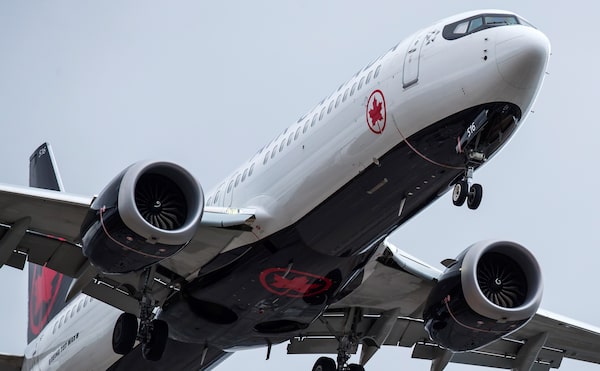
The coach of a group of young skiers whose equipment was lost on the way to an elite cross-country skiing event says Air Canada staff on the ground have been helpful, but appear helpless to fix the problem.DARRYL DYCK/The Canadian Press
Elite young skiers from a cross-country ski team in Chelsea, Que., are in Prince George, B.C., this week for the world junior under-23 championship trials, events that can determine who makes Canada’s national team.
But Air Canada left their skis stranded in Vancouver, and the four athletes, ages 17 to 19, have been without their equipment since they arrived on Sunday. They fear the airline’s errors could cost them a shot at a place on Team Canada and dampen their Olympic dreams.
“These are young kids and they’ve been training years for this,” said Maurice Samm, coach of the Chelsea Nordiq ski club. “It’s not just us. There’s a lot of stuff missing.”
About 500 athletes are competing until Saturday or Sunday in the Nordiq Canada Selection Trials and Nordiq Cup, events that include trials for under-23 and senior classes, major events on the national ski calendar.
Mr. Samm has been going to the airport in central B.C. daily, hoping the equipment arrives. Air Canada’s staff in Prince George have been helpful, but appear powerless to ensure the skis are loaded onto a plane, Mr. Samm said.
Air Canada, which flies to Prince George three times a day, said the skis were on their way on Tuesday. “Due to regional aircraft space constraints, these skis could not be transported on the same flight as the customers,” Air Canada said in an e-mail.
“There are a few teams that still don’t have their bags from Vancouver,” said Sally Connon, the chief of competition for the event, adding she has been talking with Air Canada since before the races began. Still, event organizers are considering undisclosed changes to the schedule in the interest of fair competition, she said.
“It’s obviously horrible for the athletes that trained for years to try to prove themselves for a big event like this,” Ms. Connon said.
Competitors were quick to offer their own skis to allow the Chelsea athletes to train and focus on the races that begin on Thursday. But every skier travels with several pairs of skis, each tailored to their size and weight and snow conditions, and borrowed gear is “not the same,” Mr. Samm said.
“The cross-country ski community is very tight, so lots of athletes are willing to share equipment,” Mr. Samm said. “We keep telling the athletes their job is just to keep doing what they can do and what they have control over. They don’t have any control over this situation. So all they have to do is train, sleep, eat, keep their heads in the right headspace and not get frustrated and let us coaches kind of work every angle we can to get them the skis.”
Ms. Connon said it is not unusual for anyone who flies with skis, snowboards and other large sports equipment to arrive at a competition without their gear. “The bags are big and if they’re flying smaller aircraft, then it creates a bigger problem getting the bags onto the plane,” she said. “I’m not making excuses for it …. I’m just trying to explain what it is. So it’s not special for this event.”
Megan Sutton, a spokeswoman for Vancouver International Airport, was unable to provide information on the skiers’ luggage because checked bags are the responsibility of the respective airlines.